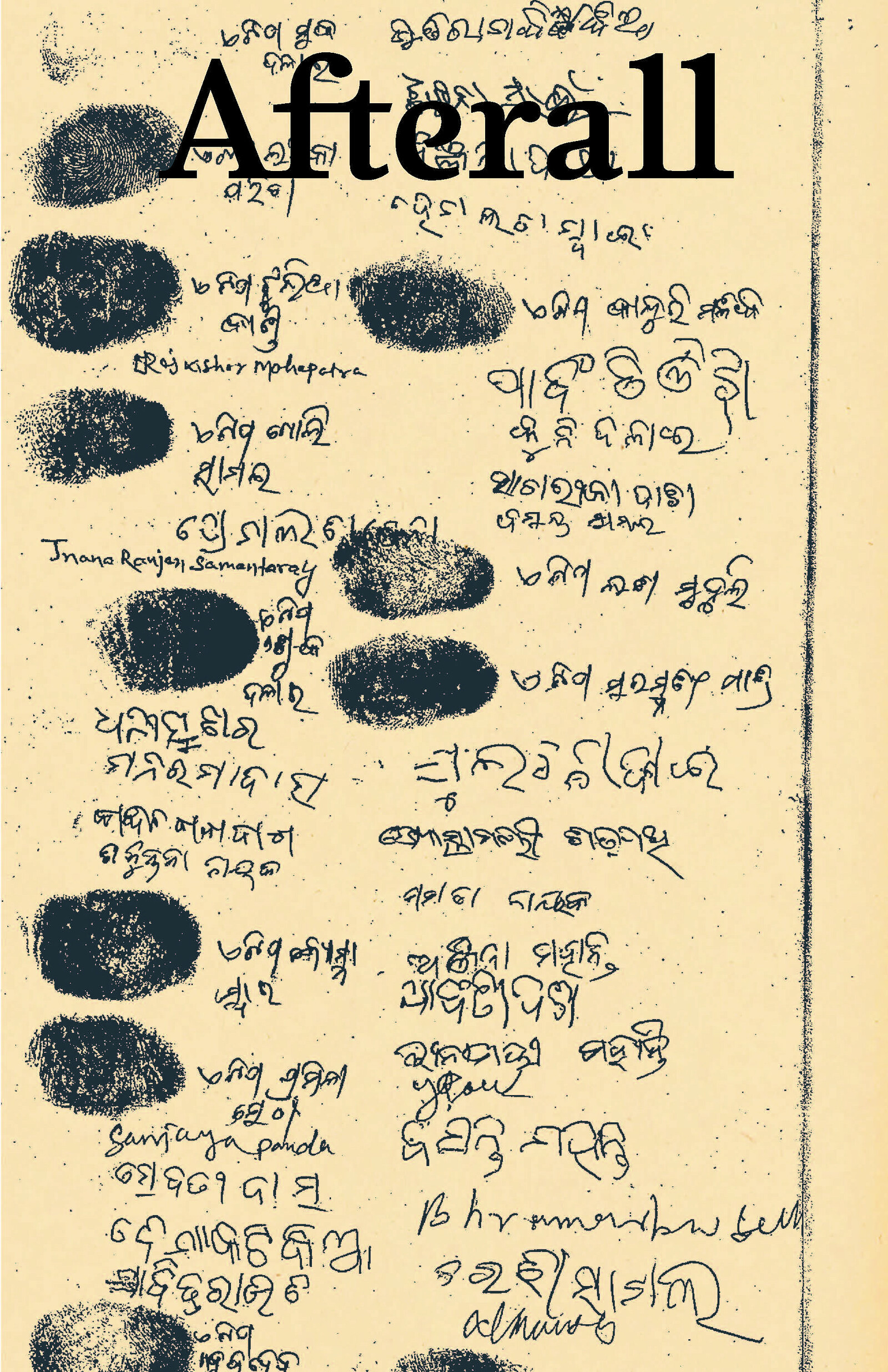Extractivism
Afterall is pleased to present issue 49, Spring/Summer 2020—”Extractivism”—which looks at a nexus of practices engaging with environmental issues and extractivist capitalism. In parallel, it covers alternative ways in which artists are occupying spaces of art, history or economics.
Combining moving image, photography, archival documentation and seeds, artist Amar Kanwar’s long term project The Sovereign Forest asks whether poetry can be a form of evidence in the struggle against land expropriation. Resulting from collaborations with artists as well as local communities in India, Kanwar’s multi-media installation negotiates between human and material realities in the field and their translation into exhibition sites. In conversation with curators Ute Meta Bauer and Anca Rujoiu, Kanwar discusses his research and interventions into the intersections of crime, politics, human rights and ecology. Alongside this interview, legal scholar and human rights activist Usha Ramanathan addresses the forest in its political and poetic dimension, beyond state rationality.
Extractivism, land rights and environmental politics at large are focuses of several other contributions. Presenting a new iteration of their project CLIMAVORE, a special commission insert by Cooking Sections’s offers a recipe for a “Bloody Oyster Cocktail,” an invitation to reflect on the act of eating under changing climatic and infrastructural conditions. In an essay devoted to the artists, May Rosenthal Sloan’s essay on their recent projects examines their aesthetic and political dimensions, and their potential for actual environmental change. Carolina Caycedo, through videos, books, installations and engagement of communities in Latin America, foregrounds indigenous knowledges of rivers against ‘hydropower’. Lisa Blackmore, discussing Caycedo’s ongoing project Be Dammed, retraces how it visually and epistemologically contests neo-liberal, extractivist definitions of the river. The aesthetics and politics of hydraulic systems, and their production of counter aural-visual regimes, are echoed with those of forests in Macarena Gómez-Barris’s discussion of occupied forest in the films of Francisco Huichaqueo and the installations of Ursula Biemann and Paulo Tavares. Finally, with her analysis of the complexities of Darcy Lange’s Māori Land Project and his engagement with Māori land struggles and film culture, Mercedes Vicente’s analysis inscribes the issue of land expropriation within a historical perspective.
This issue also pays special attention to artists who have affirmed singular identities by intervening within (art) historical narratives through medium-hybrid and performative practices. Sonia Boyce’s protean work has redefined Blackness in British art and complicated notions of participation; Nizan Shaked examines Boyce’s renegotiation of artistic categories, while Cayo Honorato looks at the artist’s trajectory between representational and collaborative modes. In siren eun young jung’s performances and audio-visual work, gender and ableist normativities are subverted. Hyunjin Kim contextualises jung’s work at the 2019 Venice Biennale in relation to the history of the traditional form of South Korean Queer theatre yeoseong gukgeuk. Expanding on jung’s investigation of the latter, Ashley Chang offers a close reading of the artist’s project Acts of Affects to show how masculinity is produced by women.
Contextual essays by Melissa Gronlund and Danielle Child provide, respectively, a rich panorama of initiatives and organisations that have shaped contemporary art in Saudi Arabia, including discussion of how artists address sensitive social and political topics in a changing country; and ideas of alternative economies, reflected in the practices of Christopher Kulendran Thomas, Irena Haiduk and Kathrin Böhm. Finally, D.N. Rodowick remembers the life, work and legacy of the avant-garde scholar and curator Peter Wollen.
Afterall issue 49 will be launched online, with various events to be announced through our newsletter and website.
Afterall Books is pleased to announce the latest titles in the One Work series, Mark Leckey: Fiorucci Made Me Hardcore by Mitch Speed; Sharon Lockhart: Pine Flat by Howard Singerman, and the two forthcoming titles, Beverly Buchanan: Marsh Ruins by Amelia Groom and Pierre Huyghe: Human Mask by Mark Lewis. The latest titles in Afterall’s Exhibition Histories series are FESTAC ’77: The Second World Black and African Festival of Arts and Culture, co-published with Chimurenga, and the forthcoming, Uncooperative Contemporaries: Art Exhibitions in Shanghai c.2000.
Afterall journal is published by Central Saint Martins, London, in editorial partnership with M HKA, Antwerp; the NTU Centre for Contemporary Art Singapore; the John H. Daniels Faculty of Architecture, Landscape and Design, University of Toronto, and in association with the University of Chicago Press.
Afterall is now available as an e-book edition, free to download for subscribers. Subscribe here.

